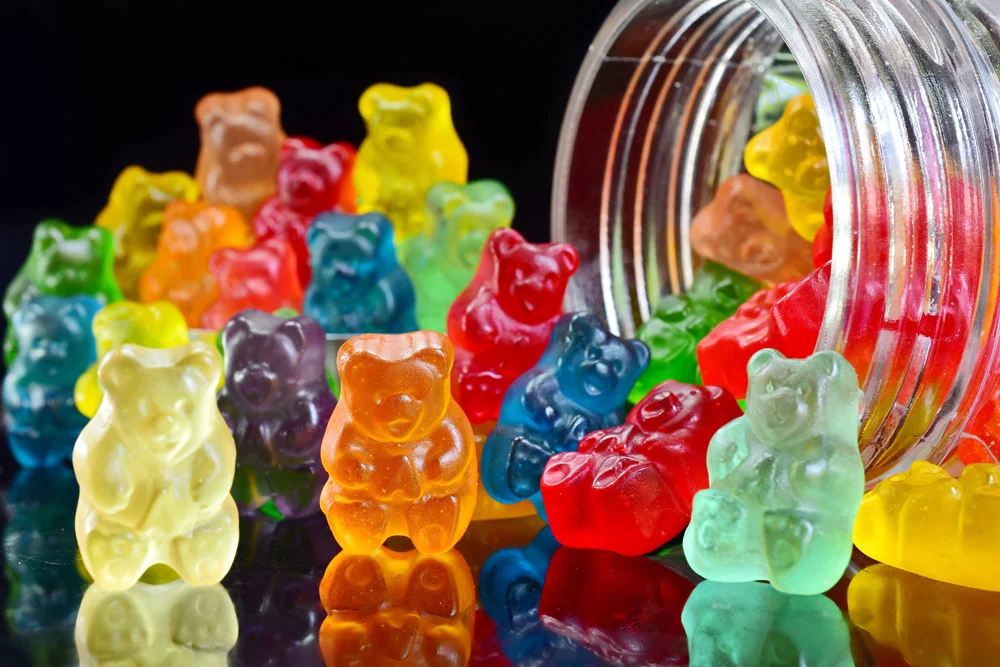In recent years, a vast market of CBD products has emerged proclaiming to treat everything from joint pain, anxiety and migraines to ADHD and cancer. Sold as oils, lotions, beverages and gummies, CBD is promoted as a safe, natural and effective cure-all.
But what do we really know about CBD products? Can we trust their quality and content, especially in the treatment of children?
According to the Centers for Disease Control and Prevention, CBD, or cannabidiol, is a compound found in marijuana. Unlike tetrahydrocannabinol (THC), which is associated with the high from marijuana, CBD does not cause impairment.
There is much scientific interest in potential medical uses for CBD. Anecdotal evidence suggests a number of benefits related to health and wellness and a 2018 World Health Organization report concluded that pure “CBD is generally well tolerated with a good safety profile.”
CBD Unknowns
Meanwhile, CBD’s legal status in the United States is not entirely clear. Purchasing CBD derived from hemp is federally legal as it doesn’t contain more than 0.3 percent THC, but is restricted in certain states. Meanwhile, the U.S. Food and Drug Administration (FDA) has approved only one CBD drug to date, Epidolex, to treat seizures. The agency prohibits the sale of health products, dietary supplements or foods that are not FDA approved – which covers virtually all other CBD products on the market.
It’s important to be aware that without FDA evaluation, consumers are left with little scientific evidence about CBD and a lot of unknowns. We can’t be certain about how safe CBD products are, their effectiveness, proper dosing, the potential for interaction with other foods or drugs, side effects or long-term impact.
With no regulatory or manufacturing oversight for the CBD industry, we also don’t know what exactly these products contain. Limited testing in recent years has resulted in the FDA issuing dozens of warning letters to CBD businesses for mislabeling their products and selling items that don’t even contain CBD or contain contaminants like pesticides and heavy metals. In 2019, FDA testing found that almost half of the randomly-selected products the agency tested, contained significant levels of THC.
According to an Associated Press investigation, some businesses are substituting cheap and illegal synthetic marijuana for natural CBD in vapes and edibles. Especially in edible form, these drugs, commonly known as K2 or spice, are deceivingly marketed as candy to appeal to young people. They have no known medical benefits and have actually sent dozens of people to emergency rooms in recent years. Even more concerning is that in 2019, Mississippi authorities found CBD products spiked with fentanyl, the deadly drug associated with many of the record-breaking 107,622 overdose deaths last year.
CBD and Kids
Yet, CBD is a booming business, with the industry estimating that more than a third of adults have tried CBD products. Companies are also increasingly advertising gummies and oils specifically for children or infants for the treatment of behavioral issues, anxiety, autism and infant brain damage.
This is concerning to medical experts who worry that children are more vulnerable to unpredictable, unintended and adverse reactions to CBD. They fear, commonly reported CBD side effects like drowsiness, diarrhea and decreased appetite, as well as possible liver damage caused by interactions with specific medications, may impact children more severely.
Uncertainty about how much CBD is in the products marketed for children is also a cause for concern. Because of a lack of regulatory controls, a child could be given a very small, probably safe, dose of CBD one month. Then, the next month, they could receive an extremely high dose of the compound – without their parents knowing it and with little understanding of potential dangers.
In the coming years, it’s entirely possible that more research will result in additional CBD products being approved by the FDA for medical or therapeutic purposes. CBD could end up helping many people. But, in the meantime, it’s important to consider everything we don’t know. Before trying a CBD product or giving it to your child, make sure to consult with your physician – and proceed with caution.

